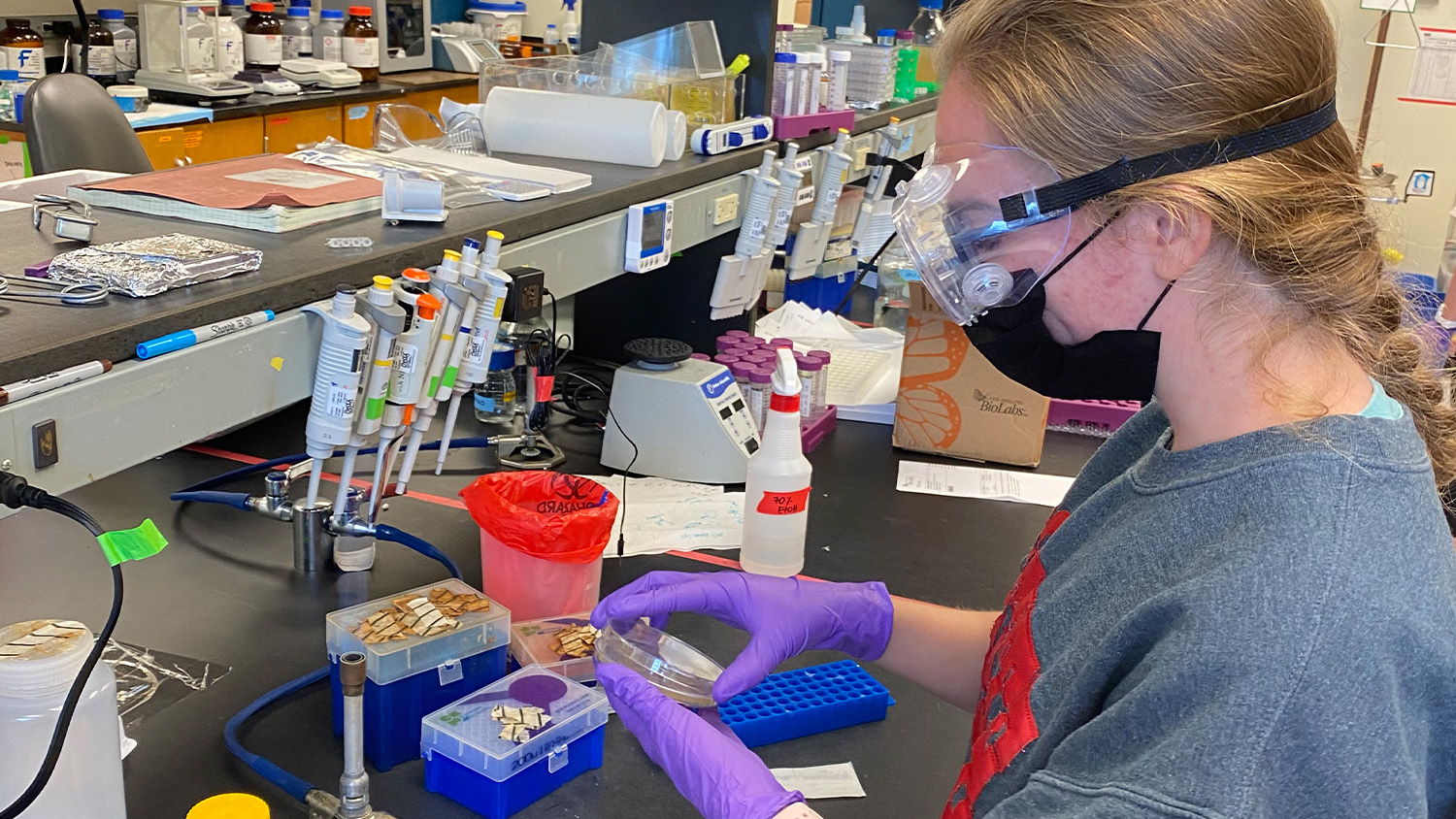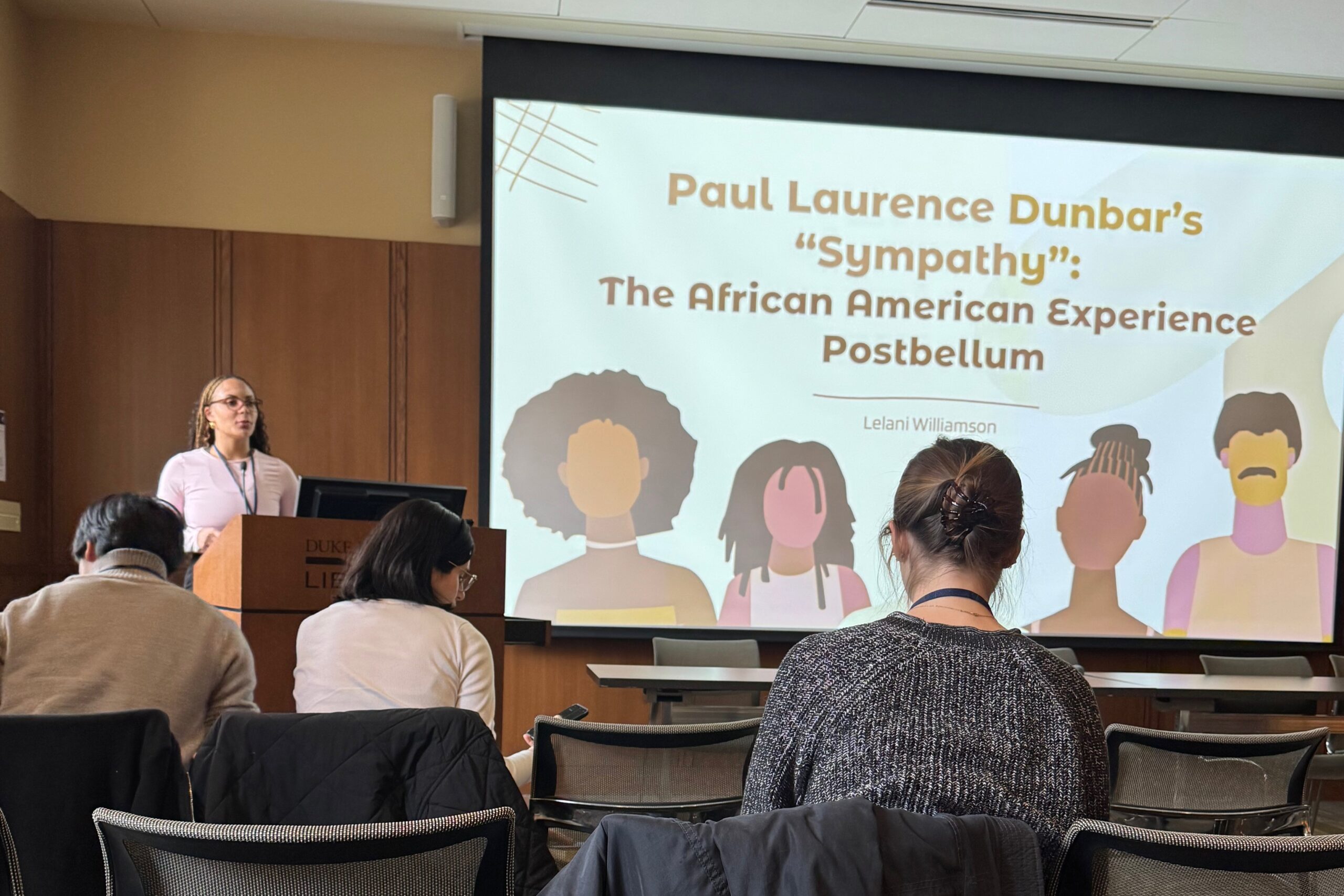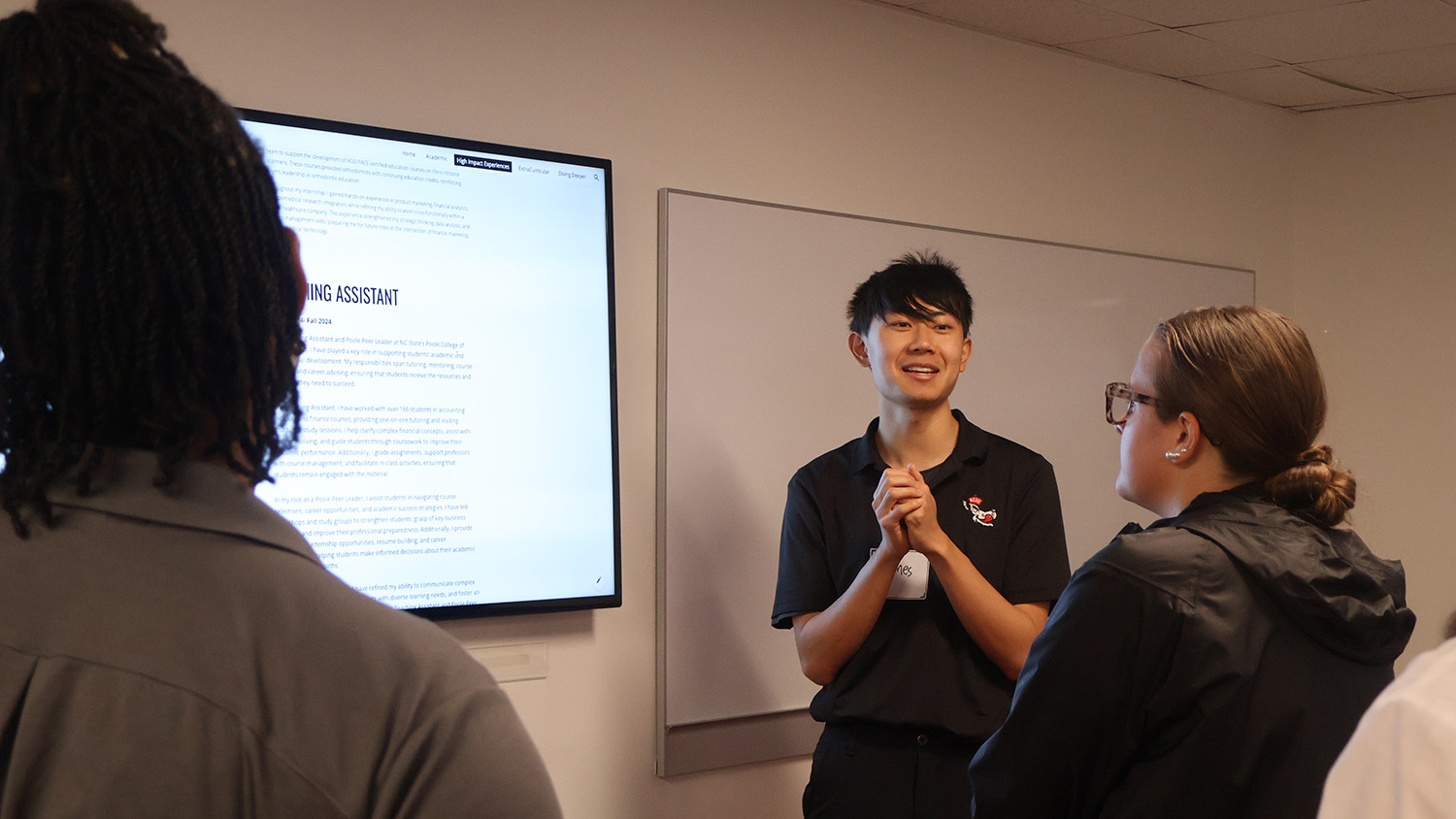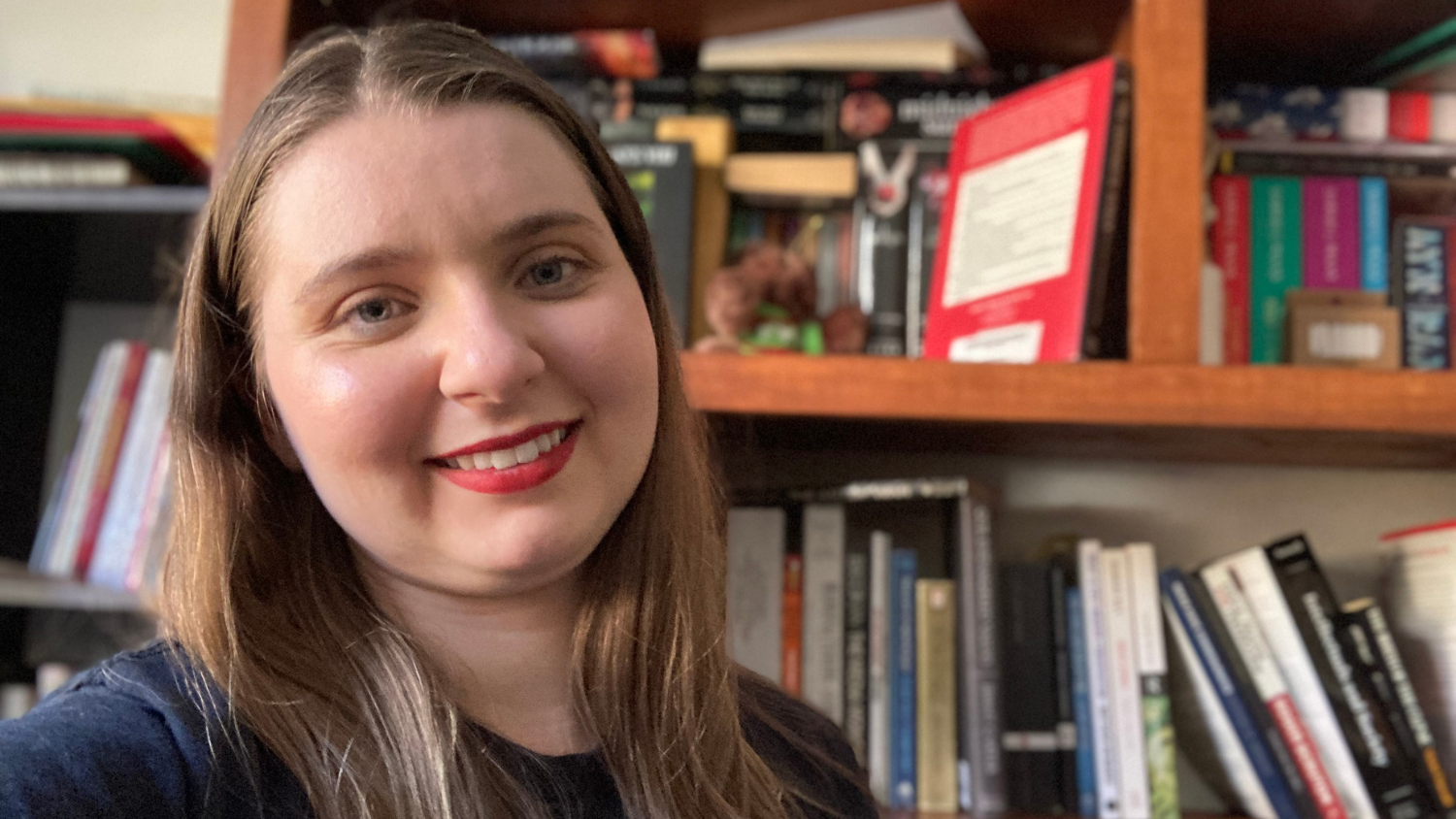Spotlight on Our Students: Katie Traynelis
The University Honors Program (UHP) interviews Katie Traynelis about her research on epigenetic modifications.

What sparked your interest in your specific line of research?
I’ve always been fascinated by chemistry and biology, specifically at the cellular level. I was that oddball kid that asked for chemistry kits for Christmas or was reading a physics book during recess. I think what really solidified my interest in research was when I had the opportunity in middle school to visit my uncle’s research lab at Emory [University]. My cousin and I got to see some of the lab spaces and the equipment they used. After that, I just needed to figure out what area of research I wanted to be involved in. My parents are both physicians, and I think that increased my interest in doing research in an area that could potentially have medical applications. During my junior year of high school I really got interested in how chemical engineers can tackle problems in the medical field through biomolecular research, and that’s what led me to the lab I’m working in now!
What do you hope to learn from this research? What are the potential applications?
This summer, I am looking at epigenetic modifications, which are reversible modifications that can alter gene expression. Specifically, I am studying an enzyme called P300 acetylates histones. Histones are proteins that DNA wraps around, and chemical modifications, like acetylation, that can affect how tightly or loosely the DNA is coiled around the histones. This can affect gene expression, so it’s important to understand how these modifications work. Specifically, I will be examining how different amino acid sequences around specific lysine residues on histone 3 affect whether or not P300 can acetylate the lysine. This will help us gain a better understanding of how P300 works and if there is site specificity for the enzyme. Epigenetics has applications in medicine, and epigenetic therapeutics have been developed to target various diseases such as cancer. Some epigenetic modifications are normal while others can cause a disease state, so a better understanding of how enzymes like P300 work can help in the design of therapeutics as well as enhance our overall understanding of epigenetic modifications.
What is the most interesting thing you’ve experienced so far while working on this project?
I think the most interesting thing I’ve experienced was when I got a negative result on my previous project. When I ran a test on my sample, one of the expression tags was absent, so I had to do some troubleshooting. Seeing a result that was abnormal forced me to reassess my understanding of the experiment. I had to go back and make sure I understood what happened at each step, what kind of result I was expecting and why I was expecting that result. It stirs your curiosity when something isn’t working and it makes you want to get to the bottom of it. Overall, I honestly learned the most when things went wrong.
What has been the most challenging? Why?
I think the most challenging part so far was understanding the scope at the very beginning of the project. Previously I had been studying acetylation of only one protein, but for this project I am dealing with a library of DNA. I am working with strands of DNA mixed together that have randomized sequences around the lysine of interest; this allows us to have a huge amount of diversity in our samples. At the very beginning of the project, I had to plan my experiments to make sure that I was capturing the entire diversity present within the library when I did a step. For example, when I needed to amplify the DNA, I had to make sure I amplified enough of the original DNA we ordered that I could be sure that I had captured each unique variation present. At first, it was difficult to understand how many times I needed to do a step or how much product I needed to make to ensure I wasn’t unintentionally excluding sequences.
What is the most valuable thing you’ve learned from undergraduate research?
It’s okay to ask for help when you get stuck. Research can be challenging, and sometimes things don’t work and you have no clue why. When that happens, it’s important to ask other people who may have faced similar challenges for advice and help. If you’re in a good environment, people will be willing and happy to help you when you’re struggling. Asking questions is how we learn.
How has your time in the UHP prepared you for this experience?
My time in the UHP helped me hone skills that are translatable to any experience, but the ones I’ve found to be most helpful in research are time management, presentation skills, collaboration and communication. When you are tackling your own project in the lab, you work independently and make your own plan for the day, so it’s really important to have good time management skills. Collaboration and communication are also important skills that I learned in my honors seminars. Being able to communicate your ideas and problems clearly to others allows you to get more specific advice and to troubleshoot problems better. Along those lines, my honors seminars did a very good job of preparing me to give presentations. In my seminars, I learned how to give informative but concise presentations, which is important in research. You need to be able to communicate your results to others, and my honors seminars prepared me well for that aspect of research.
What do you want to tell other students about how to prepare for research opportunities like this?
A good first place to start is to think about what kind of work you would like to be doing and then check your department’s website for a research page. There should be a page that has all the different labs in your department and what each one is researching. If you aren’t completely sure what you want to do, you can look at research going on in other departments as well. The next step would be to find a professor or two whose research interests you and send them an email asking if you could meet and hear more about their work; most professors love to talk about their research, so don’t be afraid to reach out. Research might feel overwhelming at first, and that’s okay! No one knows what they are doing all the time, so it’s okay to ask for help and clarification. I would also say, don’t feel like you need to have taken certain classes before you can start working in a lab. I hadn’t taken a college biology course before I started research last semester, and I learned so much both in the lab and in my biology course. What I learned in the lab actually enhanced my understanding of the material I was learning in class.
What’s the best bit of advice you’ve ever received?
Don’t compare yourself to others. If you try to compare your accomplishments with someone else’s, you get caught in this loop of competition where you are constantly telling yourself that you aren’t good enough. It’s okay to look to others for inspiration, but don’t measure yourself against them or put your value in how you measure up. We all have unique strengths and talents; if we didn’t, the world would be a pretty boring place!
- Categories:


